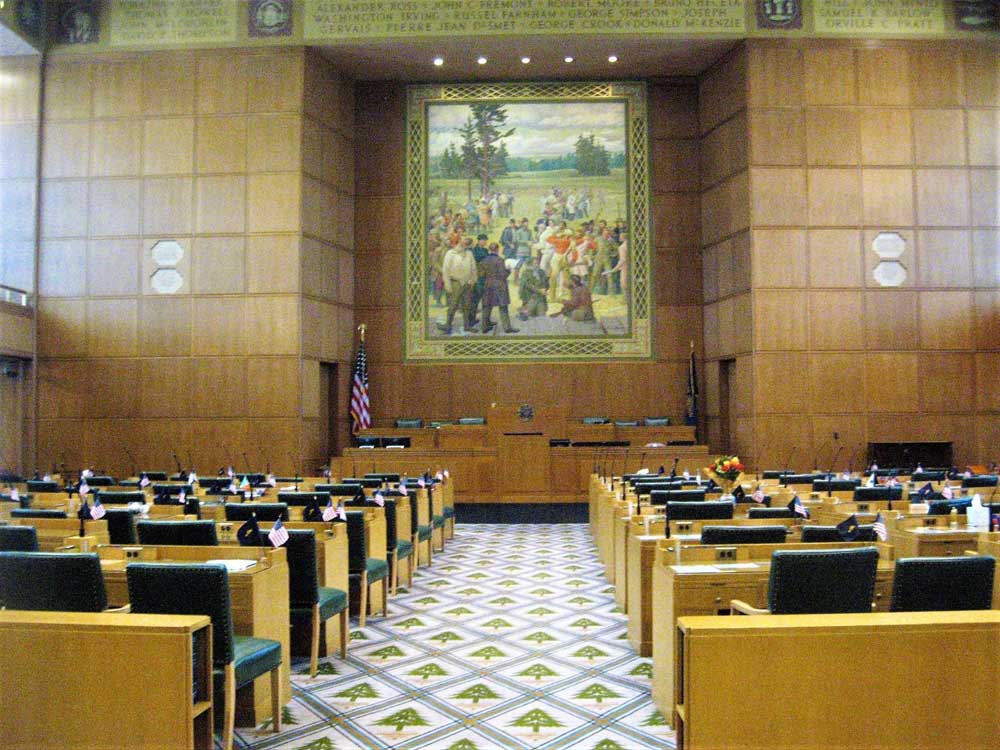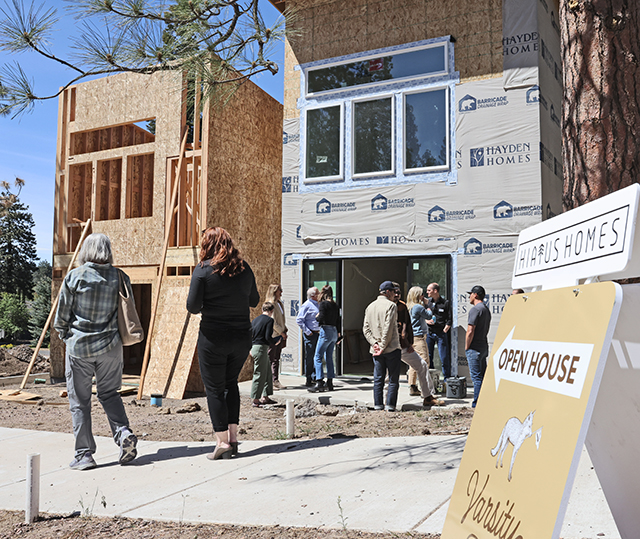Democrats: Bipartisanship nice, results nicer
Published 2:00 pm Tuesday, January 26, 2021

- The House chamber in the state Capitol in Salem.
Democratic leaders on Monday said they hope for bipartisanship in the 2021 Oregon Legislature.
But, they said, they won’t let that goal hinder their desire to pass laws they consider crucial.
During an online preview of the Oregon Legislature held by the City Club of Portland on Jan. 25, Sen. Majority Leader Rob Wagner, D-Lake Oswego, and House Majority Leader Barbara Smith Warner, D-Portland, said Democrats’ goals were forged by the pandemic, wildfires and the calls for racial justice in the wake of the police killing of George Floyd in Minneapolis.
The agenda is “transformation through crisis,” Smith Warner said, citing 2020’s challenges. “How do we learn from them and use them as an opportunity to really make meaningful change?”
The answer, she and Wagner said, includes crafting a two-year budget for the state that will seek to address economic inequities and well as pass legislation that includes criminal justice, the environment and addressing affordability and gaps in the state’s health care system.
Republicans who had been invited were not present at the event to challenge the Democrats’ representations. The Pamplin Media Group, of which Portland Tribune is a part, is a media sponsor of the series, as is XRAY.FM. Tribune Managing Editor Dana Haynes moderated the forum.
During an introduction, City Club President Julie Davis said, “We had hoped for a bipartisan conversation and attempted to work with Republican leadership to find a time that fit their schedules, but they ultimately declined to participate.”
Wagner and Smith Warner took the time Republicans ceded by laying out Democratic Party priorities while faulting Republican positions taken last year, when Democratic efforts to pass climate legislation and mandatory vaccination were stymied by the Republican walkout.
The Democratic leaders also argued that, contrary to some Republicans’ complaints, the Legislature’s decision to limit the risk of COVID-19 by holding many meetings virtually won’t affect the democratic nature of proceedings.
“It’s actually going to be one of the most accessible legislative sessions ever,” Smith Warner said. “Every Oregonian will have the opportunity to testify, to engage in bills without ever leaving their home, without having to get child care, without having to take time off of work.”
For the first few months of the session, committees will hear from the public and work on legislation only in online meetings. Actual in-person voting by members is expected to start in midsession, around April.
Asked how the Legislature this year could address challenges expected in years ahead, Wagner and Smith Warner pointed at legislation intended to address global warming and renewable electricity, among other things.
They said Democratic goals include boosting the construction of long-term affordable housing as well as short-term housing such as by purchasing motels and hotels to help give homeless people a place to stay.
They said their caucus has tried to help rural counties where Republicans predominate.
“So much of the cap-and-invest work was designed to create to be able to generate resources that then could be distributed to those communities that are most impacted,” Smith Warner said. “It’s our frontier counties out in Eastern Oregon that are having the results of years and years of drought. It is our timber counties (that saw wildfires) last year.”
Asked about the one bill that would most address racial justice and inequities, Wagner said he couldn’t make that judgment. “We need to do the deep work of leaning in and asking communities of color what they need,” he said.
Democrats enjoy lopsided majorities in the House and Senate that allow the party to approve revenue-raising measures without relying on Republican support.
In the past, to ensure a measure of bipartisanship, Senate President Peter Courtney, D-Salem, at times sought to make sure Democratic bills had at least one Republican senator in support.
It’s not clear that will happen in this session.
Asked about bipartisanship, Wagner said the two parties don’t always agree on the role of government, so “I’m not sure that necessarily bipartisanship is the goal. I think the goal is focusing on what is the legislation that is needed for all Oregonians.”






